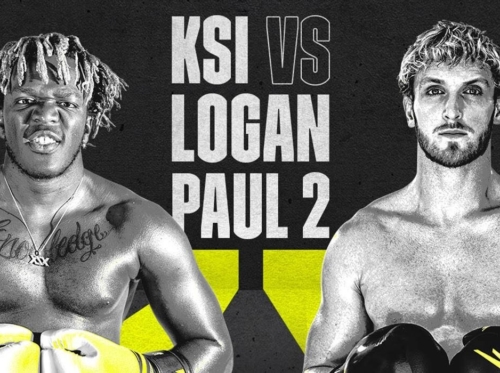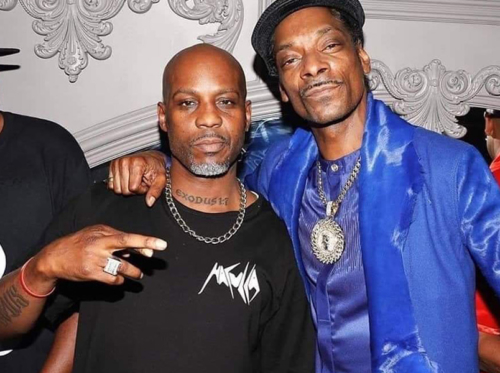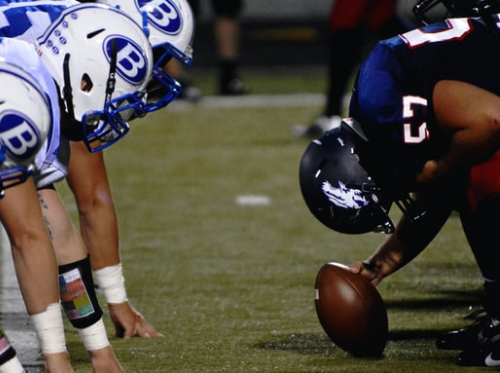Paul / Mayweather and the Growth of Sports Creator Competitions
EPISODE NOTES
This month Logan Paul fought Floyd Mayweather in an exhibition event, drawing 1 million PPV buys and generating $50 million in revenue. It’s yet another datapoint in the growth of made-for-social creator competition series, which represents the exciting intersection of social media stars and sport. We discuss the breakdown of PPV vs ad-supported models, how House of Highlights’ Showdown series drove over 100 million online views, the need for real competitive stakes, Triller’s $500 million capital raise, and re-defining sport as we know it.
Subscribe to our newsletter. We explore the intersection of media, technology, and commerce: sign-up link
Learn more about our market research and executive advisory: RockWater website
Email us: rounduppod@wearerockwater.com
You can listen, subscribe, and follow our show on:
Our ask: wherever you listen, and particularly on Apple Podcasts, please give us a rating and write a short review. And forward this email to a friend. Doing so will help others discover the RockWater Roundup.
EPISODE TRANSCRIPT:
Chris Erwin:
So Andrew, we’re seeing a lot of activity around the made for social creator competition, sporting events.
Andrew Cohen:
Yeah. No, it’s really cool. It’s definitely a perfect storm of all the things that get us excited between the creator economy and sports media and live streaming. It’s definitely something I’m excited to chat about.
Chris Erwin:
And this is something we actually covered in our RockWater blog. In November 2019, there was a second Jake Paul KSI fight. Now just looking out over the past year and a half, the space has really grown and it’s really evolved.
Andrew Cohen:
Come a long way for sure.
Chris Erwin:
Yeah. A few things to break down here. Before we go into some of the recent market activity there’s a great quote here from Doug Bernstein, the GM of House of Highlights. So he notes, “Creator competition is a new category unto itself, almost akin to e-sports.” I think that’s well put. So there’s a couple of different types of models we’re seeing here. I think we broke it down simply into those that we look at as pay-per-view versus those that are ad supported.
Chris Erwin:
So let’s talk about a big recent pay-per-view fight. That was the June 6th Logan Paul versus Floyd Mayweather. Generated over a million pay-per-view buys on Showtime, generated around 50 million in revenue. Of notes, there’s only about 25 boxing matches in history that have seen that many pay-per-view purchases. And the fact that it was an exhibition, like no judges, no winner, it’s even more impressive. We’ll talk more about that. Also, on June 12th, there was the YouTube versus TikTok fight on LiveXLive. And then in April, there was the Triller Fight Club series of Jake Paul versus the former MMA fighter Ben Askren. There’s many more on this list, but let’s talk about a few of the ad supported creator competition events we’ve seen.
Chris Erwin:
So a prominent one is House of Highlights. I think just last week they did their third installment of the Showdown Series, a dodge ball knockout event. The first two, which I think were in earlier this year, or even in 2020, were basketball and golf. And these were done live on YouTube and supposedly the first two events garnered over a hundred million online platform views, just striking number. Another event of note last year is Mr. Beast Creator Games that actually became YouTube most watched live original of all time. So I think the first one was in April of 2020, had 662,000 concurrent viewers for a virtual rock paper scissors contest, and I think they did another one in October. So there’s more here. Bleacher Report did The Match, which is a golf showdown and a handful of others. But I think the bigger question is Andrew, why are we seeing so much market activity around, is this even a trend or probably something that’s more permeant?
Andrew Cohen:
It’s starting as a trend, but I think it’s here to stay and it’s going to turn into something more legitimate, sustainable. But really overall, when you look at it holistically, it seems like the worlds of sports and entertainment are merging. On one side we have traditional sports that are using shoulder programming to fuel storytelling and to engage new audiences. And then on the other hand, like we’re seeing, everything you just mentioned, social creators using sporting events as kind of bottom funnel activations to eventize and monetize the culmination of internet trauma that they’re able to create.
Andrew Cohen:
So Chris, what do you think it is about these social creators that make them so perfect to generate all this excitement for live events?
Chris Erwin:
So, Andrew, I think that there’s a few key dynamics to note. I think these digitally native creators are the most polarizing and engaging personalities of today. And what we’ve known through a lot of our research and work is that we’re in the world of personality led content. And that type of content reaches more younger audiences globally, particularly millennial and Gen Z, than any other type of content. There’s also the ability for these digitally native creators to interact with their fans. It’s a real two-way street that’s very unique. And I think really importantly, there’s this always on dynamic, where the creators are logging to their social channels 24/7, that becomes an always on promotion cycle to fuel excitement around these sporting events. I think this is a really key takeaway here that younger audiences are more passionately loyal to their favorite creator personalities then they are to their hometown team or even to traditional celebrities. So specifically these Gen Z sports fans are more loyal to athletes than teams, favoring athletes over teams by a margin of two to one compared to baby boomers. That’s a big stat.
Andrew Cohen:
Yeah, it’s crazy. And I think that explains a lot of the moves that we’re seeing on the other end of the spectrum by sports leagues who are really making an effort to use storytelling and kind of drama and personalities surrounding the event to drive tune in and fuel engagement. So I think a great example that we’re seeing recently is what Formula 1 is doing with their Netflix show, which has become my favorite soap opera to watch. And as a result, Formula 1 viewership in the US has gone up 36% year over year, just this year. And I think that’s because people feel connected with the personalities and with the storylines and that makes them kind of want to tune in and see how it all plays out on race day.
Chris Erwin:
I feel like everyone I talked to asked me, have you seen the Formula 1 show on Netflix? It’s definitely feels like it’s become part of the zeitgeist.
Andrew Cohen:
It’s crazy. Yeah. The hype is real and it translates to that viewership. So we’re seeing other leagues go for this as well. The NBA is definitely the most popular sport among Gen Z in large part because it’s such a personality focused sport. No one’s wearing helmets, it’s really the stars are front and center. And the NFL, even though it has the highest ratings, it’s kind of losing this next generation of fans because the players don’t have that same level of visibility. It’s why they’re doing a ton on social media, they’re owned and operated brand the Checkdown which is kind of like their version of House of Highlights to take the helmet off the players and to make these personalities more front and center because that’s how you get young fans kind of engaging with that live product.
Andrew Cohen:
And we’re seeing other leagues do this as well. The PGA just recently announced their new Player Impact Program, which is a $40 million pool that’s going to be distributed to the 10 golfers that generate the most fan and sponsorship engagement. So again, incentivizing their athletes and be front and center and to be personalities because that’s how you bring fans in. And really everyone is kind of replicating this, but the originator is WWE. They have been built on kind of using even before social media kind of creating the soap opera that surrounds the mash to drive that pay-per-view tune in for tent pole events. So now we’re kind of just seeing this happen on a bigger scale and it kind of merging with the new soap operas of the digital age, which is social creators.
Chris Erwin:
To boil that down, Andrew, tell me if I’m hearing this right, that sports leagues need to borrow the tactics of social influencers to generate that top of funnel awareness and engagement. And then on the flip side, the social brands, publishers and creators need to adopt the competitive event formats of pro sports to really build out that bottom funnel monetization for all the hype and all the attention that they’re really able to generate across these new useful audiences? Is that kind of encapsulate it?
Andrew Cohen:
Correct. That’s what I’m seeing.
Chris Erwin:
So then, okay. As we work to wrap up this micro cast, I think the next big question is how is this going to evolve going forward? Is this a trend or is this something of more permanence as we were raising before? And what are some of the things that you’re seeing, Andrew?
Andrew Cohen:
I definitely think it’s here to stay, but there need to be some changes that are made to kind of make it more sustainable versus just a bunch of one-off events. And I think one big thing that sticks out to me is the need for true competitive stakes and for these formats to evolve so that there really is a sense of stake on the line at the events themselves. So we’re seeing it’s kind of easier for leagues to create that authentic pop funnel storytelling because the dramatic stakes and the personalities are already inherent to sports. So it was really just about finding the most effective ways to capture and distribute it to maximize impact. So whether it’s a premium series on Netflix or HBO, or just kind of behind the scenes clips on tiktok, the personalities are there, just how you put it in front of people.
Andrew Cohen:
On the other side, though, creator competitions need to figure out a way to better replicate that inherent drama of real sporting events to actually maintain viewer trust in the long run, to continue to generate pay-per-view buy-in and maximize in mash engagement. Because if it’s perceived as just like a cash grab by two creators, I think interest is going to wane.
Chris Erwin:
Point really manifests when you look at some of the numbers, right? So let’s dive into some of the stats. This most recent Logan Paul, Floyd Mayweather fight had a million pay-per-view buys, 50 million in revenue. Now you could say that, all right, compared to the first Jake Paul KSI fight, that was about two and a half years ago from 11 million in revenue this was a big win. But let’s compare it to another fight, Mike Tyson versus Roy Jones Jr on Triller, that had 1.6 million pay-per-view buys over 80 million in revenue. Another one on Triller, Jake Paul versus Ben Askren the former MMA fighter 1.5 million pay-per-view buys over 75 million in revenue. So I think what you’re getting at is this is really due in large part to the lack of competitive stakes in the match itself, right?
Andrew Cohen:
There was no winner, it was just an exhibition match. Both Paul and Mayweather had already kind of made all their money because of the way it was structured before they even stepped in the ring and there was really nothing left to fight for at that point.
Chris Erwin:
Just looking at the numbers again, Floyd Mayweather was guaranteed $10 million and 50% of pay-per-view sales. Logan Paul was guaranteed $250,000 and 10% of pay-per-view sales. But you know, just in a little bit of quick research before this, I was looking up the purse, the winner prizes for traditional boxing fights, where there’s the competition matters. Supposedly for Mayweather Pacquiao few years back, that purse was reported at being worth up to nearly $500 million. If you’ve got that much money on the line, you’re going to make that event a spectacle and you’re in a fight to the last amount of energy and blood and grit that you have.
Andrew Cohen:
Mayweather kind of even admitted after the fight that it was just a cash grab. He said, quote, “They say, it’s not all about the money. Well, your kids can’t eat legacy. The patches on my trunks earned me $30 million alone. When it comes to legalize bank robbing, I’m the best.” So he kind of just gave up the game right there that it wasn’t really about the outcome, that the only outcome that mattered was kind of sealed in his bank account before he even stepped into the room.
Chris Erwin:
So do you think that competitions like this are going to persist or that they’re going to change?
Andrew Cohen:
I think they have to change. I think, like we said, kind of the underlying dynamics that are driving the creator competition trend are strong. So I think that format is here to stay, but that there’s really a need for the drama unfolding during the tent pole event itself, it has to be as engaging and as compelling as all the promotional content leading up to it if they expect to maintain that fan trust needed for people to actually continue paying money, fight after fight. And I think if each time you had the Floyd Mayweather saying like I don’t really care, thanks for your money, I don’t see that happening. But like we were saying up top, the value prop is really, it’s about leaning into watch personalities, that we have this deep relationship with compete in high stakes events. So it doesn’t have to just be boxing, I think we’re actually going to see this expand. Maybe even the very definition of sports itself expand because really at the end of the day, that’s what we’re here to see. And as long as the stakes are there at the end of the day, I think we’re going to see this trend continue to thrive.
Chris Erwin:
That’s totally right. And I think this notion of redefining sports that that’s already happening. We’re having a call with the CEO of NV Gaming based out of Dallas and hearing about the new talent additions they’ve brought onto their roster. So they signed these two twin sister chess prodigies. So they’re bringing out chess as an event because there’s audiences behind it, there’s different ways to set up that competition to build shoulder and pre and post programming around it. Even House of Highlights, kicking off with dodge ball, their new third installment last week. We’re starting seeing Jenga events by Barstool Sports. And I think you and I were even riffing before this podcast, everyone talks about the British Bake Off, I think that’s on Netflix. So what if you to kind of rethink that and make that into a creator competition series of this spirit, do you have a chef from Bon Appetit that’s going against like a chef from First We Feast, what are the different ways to wrap the content experience around that? I think we’re going to see a lot more fun instances of competition emerge in different verticals that we didn’t expect.
Andrew Cohen:
The creators are going to be incentivized to go for this short term cash grab. But I do think that we’re going to see these formats of evolve, but it’s going to be up for the brands and the platforms to do so. To develop formats and kind of a long running event franchises that will ultimately transform this creator competition trend into a long-term enterprise value play. I think we’re already starting to see that if you just look Triller just announced that they’re raising $500 million at a $5 billion valuation. Overtime, just raise an $80 million series C after announcing a new league. And even House of Highlights we can see that with the Showtime series, they’re kind of pivoting their brand strategy to a creator competition focus to kind of decrease some of their reliance that they have on league and platform partners. So I think that people are seeing this as less of just like a one-off event here and there and more as a way to kind of create long-term business.
Chris Erwin:
All right, Andrew. Well, we’re at the end of our time and I hear sirens going off in the background. So I think it’s time to cut.
Andrew Cohen:
I think that’s our cue.
Chris Erwin:
All right, until next time.
—
Ping us here at anytime. We love to hear from our readers.



